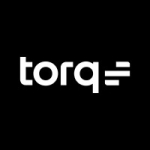What is our primary use case?
Basically, we are using it for most of our automation, and not as per the SOAR, although it is a SOAR application. We are not using it just for security purposes. We are using it for various purposes like maintenance.
We do have our own data center where we have our maintenance on the infrastructure side, and the application has to be brought down. Here it has done exceptionally well. We shut down all our different applications by writing our code in the shell languages, and we upload through GitHub. It means that we can just call that script, and it gets triggered on the particular server, and it shuts down. It's like a workflow.
The workflow has been created in such a way that it helps us. Earlier, when we used to have to manage it manually, when we shut down the application, it used to take a lot of time. Now it is done within 30 minutes. In our environment, we have SAP applications, and SAP has its own commands to shut down the applications, databases, et cetera. So it is just not limited to all those shutdowns and this. We do have various other stuff as well, like upgrades. So we have written the upgrade codes, and now we can upgrade X number of SAP applications and databases as needed.
How has it helped my organization?
It has helped us with the SAP kernel upgrade. Recently, due to security fixes, and security bugs, we had to upgrade the various SAP applications. To do it manually, it would have taken around five to six months to complete. However, with this product, we were able to complete it within two months since we just wrote a script, and it got triggered in various systems, and it fixed everything. We were saved from the security perspective as well since it ensured we had less vulnerability for less time. Also, thanks to SOAR, only two people were needed to run all those scripts, and just have to monitor everything. That's less personnel.
What is most valuable?
The customizable playbook is the most valuable aspect of the solution.
With the Splunk vendor itself, the vendor is supporting us in the creation of those playbooks. We have created playbooks in such a way that they are a universal playbook, where we just have to bring in any type of command which needs to be triggered, and it works. If we did things another way, we would have to install our agents to connect the particular application. Here, we don't have to have to do that. It can work in the playbook itself. We just have to give our credentials. The credentials also are in an encrypted format, so we are much more secure.
The solution is stable.
Technical support is helpful.
What needs improvement?
What we have seen is if the workflow gets halted or if we want to halt a workflow, it cannot be resumed. We have to trigger the entire plan from step one. That is a bit annoying. If something is wrong, we can't just resume stuff. We'd like it to be possible to pause things without having to start from square one.
Reporting could be better. We are getting reports, yet not in the way we want. Whatever fails, for example, we want all those errors, the logs, in an attachment, which can be sent easily over an email just by the click of a button. Right now, we cannot send over an email. We have to pull everything, and we have to download it.
For how long have I used the solution?
We've been using the solution for the past two years.
What do I think about the stability of the solution?
The stability is great. I'd rate it eight out of ten. It's not breaking very often, and the playbook makes things easy for us.
What do I think about the scalability of the solution?
I'd give the level of scalability seven out of ten. There is still room for improvement. We'd like to have more use cases and automation.
How are customer service and support?
Technical support has been good. I work on technical parts of the product and bring in use cases, et cetera. If there are any problems, my colleagues check with the vendor and so far, we have had good support from them. We haven't had many issues.
Which solution did I use previously and why did I switch?
We were using IBM BigFix before this, and we used it for various purposes like patching on the Windows server. The same solution was also used for the automation of shutting down the system, upgrades, and many other things. Ultimately, we decommissioned it, and we moved ahead with the Splunk SOAR.
What about the implementation team?
The vendor was the one who deployed the solution. Later on, they just installed it on our site. We gave everything to the vendor, and the vendor supports everything since it is on the cloud.
What was our ROI?
We have witnessed an ROI, and it is good. We've gotten good feedback from senior management.
What's my experience with pricing, setup cost, and licensing?
I don't handle the pricing aspect of the product.
What other advice do I have?
We are both partners and customers of Splunk.
If you are a company looking into SOAR and if you are a customer of Splunk, then you should definitely use it. And if your product is most probably looking for security or for some alerting purposes, it will help you to automate your many, many use cases. You can build many, many things with Splunk and on the SOAR side and you can automate your end-to-end process. Also, companies should know that a minimal language knowledge of Python is required.
I'd rate the solution eight out of ten overall. Even for people who are not too technical, it's a good product.
Which deployment model are you using for this solution?
Public Cloud
Disclosure: My company does not have a business relationship with this vendor other than being a customer.





















